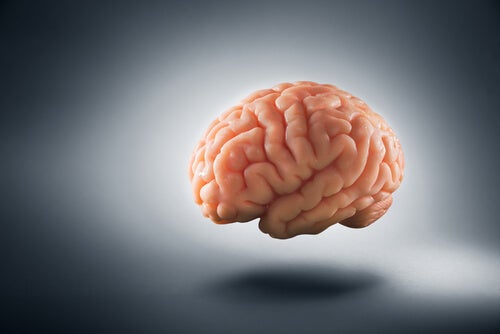How Poverty Changes the Human Brain

Is it true that poverty changes the human brain? Well, many of the brain studies of the last 50 years concentrated on studying the effects of an enriched environment. They found that greater social and intellectual stimulation leads to structural and functional changes in the brain.
Given this fact, researchers began investigating what happens in the opposite situation. Thus, they observed that a lack of resources and poverty also changes the human brain.
The first studies focused on trying to discover how socioeconomic differences reflect in a person’s behavior and cognition. Others, on locating the various brain networks, functions, and structures according to socioeconomic levels. In spite of this, scientists don’t yet know exactly how these differences occur. However, there’s enough evidence to affirm that poverty changes the human brain.
“Extreme poverty anywhere is a threat to human security everywhere.”
-Kofi Annan-

Effect on the developing brain
These findings mainly relate to the child population because a developing brain is more sensitive to external factors.
Environmental factors, in addition to genetic factors, drive brain development. Thus, a person’s socioeconomic level can definitely influence this period.
So consequently, researchers discovered that the genetic burden on the development of brain structure and cognition is higher in people of high socioeconomic status. Therefore, the characteristics of the environment could have a greater influence in those of low socioeconomic levels.
Findings
Language is one of the abilities most related to socioeconomic level during childhood. Research in this regard showed how poorer children show less specialization in the brain areas that pertain to language.
As for memory, the poorest children have a smaller hippocampus. And this effect lingers for the next five decades, regardless of socioeconomic conditions in adulthood.
Similarly, the amygdala is a brain structure pertaining to emotional processing, learning, and motivation. In this sense, the poorest children have a smaller amygdala, which can alter and translate into poor emotional regulation.
In addition, when it comes to executive functions (more complex cognitive processes such as decision-making or planning), a lack of stimulation and resources leads to alterations and deficits.
As in the previous processes, there’s a link between lower socioeconomic levels and poorer executive performance and, in addition, a lower volume in the brain areas involved.
How poverty changes the adult human brain
Most of the effects of poverty discovered in adults are due to a lower socioeconomic level as children. However, there are also some effects regardless of the kind of childhood they had.
For example, an interesting study published in the journal Science found that a mere economic concern affects cognitive performance, specifically executive functions.
For the purpose of the investigation, the researchers divided people into two groups based on a single criterion: a difficulty with arithmetic operations. And for the next step, the people in each group had to deal with a situation of greater or lesser economic concern.
Both groups had similar results in the lesser variable. Likewise, people with a greater financial concern obtained worse results in a more difficult variable. In other words, they showed an impaired ability to inhibit inappropriate responses. Also, to select the corresponding ones and maintain relevant information.

Mechanisms
Although scientists don’t precisely know the hidden mechanisms that change the human brain due to poverty, there are many possible ones which act together.
- Lack of resources. The limitation of resources, such as books, toys, and educational opportunities, undoubtedly affects the quantity and quality of stimulation a person receives.
- Nutrition. Nutrients play a fundamental role in the human brain, especially in neurodevelopment. Thus, a lack of vitamin B12, omega-3 fatty acids, zinc, and iron affect brain development. This is because they modulate plasticity, genetic expression, and regulate the production and quality of neural networks.
- Stress. Both children and adults who live in poverty suffer the effects of stress. Exposure to impoverished environments is related to an increased production of cortisol, which has devastating effects.
- Environmental toxicity. People of lower socioeconomic statuses often live in toxic environments. For example, public housing near factories that’s, therefore, more polluted.
One way or another, fighting poverty isn’t just a matter of health. It’s a variable and a generator of a context with very particular circumstances that’s often an obstacle to human cognitive functioning.
All cited sources were thoroughly reviewed by our team to ensure their quality, reliability, currency, and validity. The bibliography of this article was considered reliable and of academic or scientific accuracy.
- Johnson, S.B., Riis, J.L., Noble, K.G. (2016). State of the Art Review: Poverty and the Developing Brain.Pediatrics., 137(4):e20153075
- Mani, A., Mullainathan, S., Shafir, E., & Zhao, J. (2013). Poverty Impedes Cognitive Function. Science, 341(6149), 976–980.
This text is provided for informational purposes only and does not replace consultation with a professional. If in doubt, consult your specialist.








